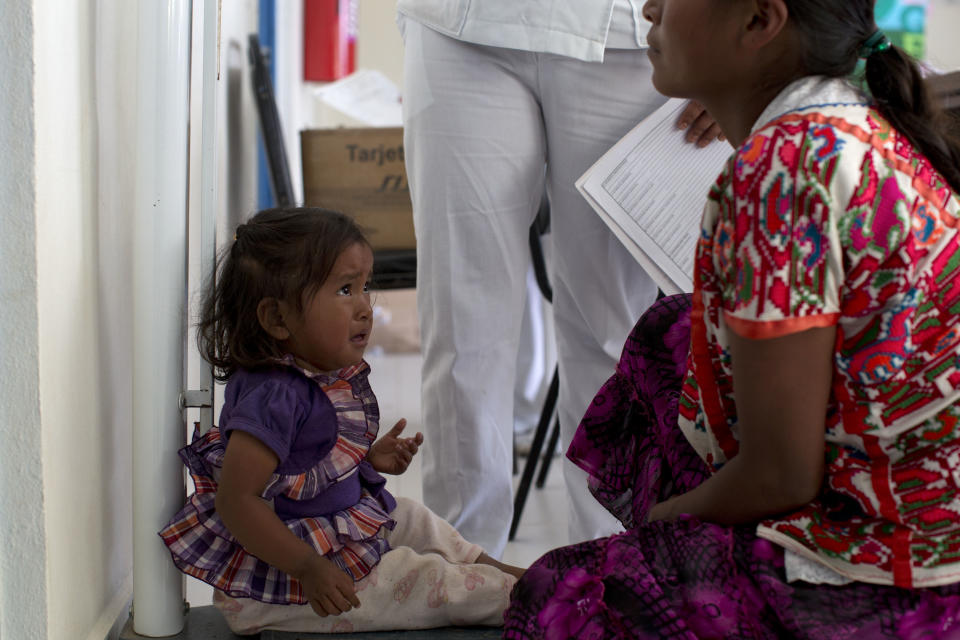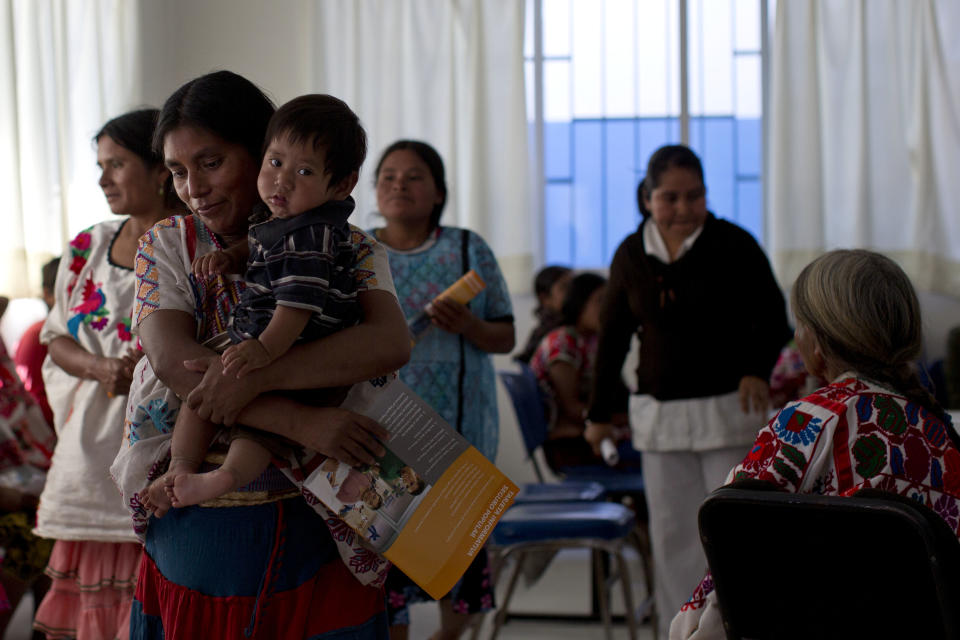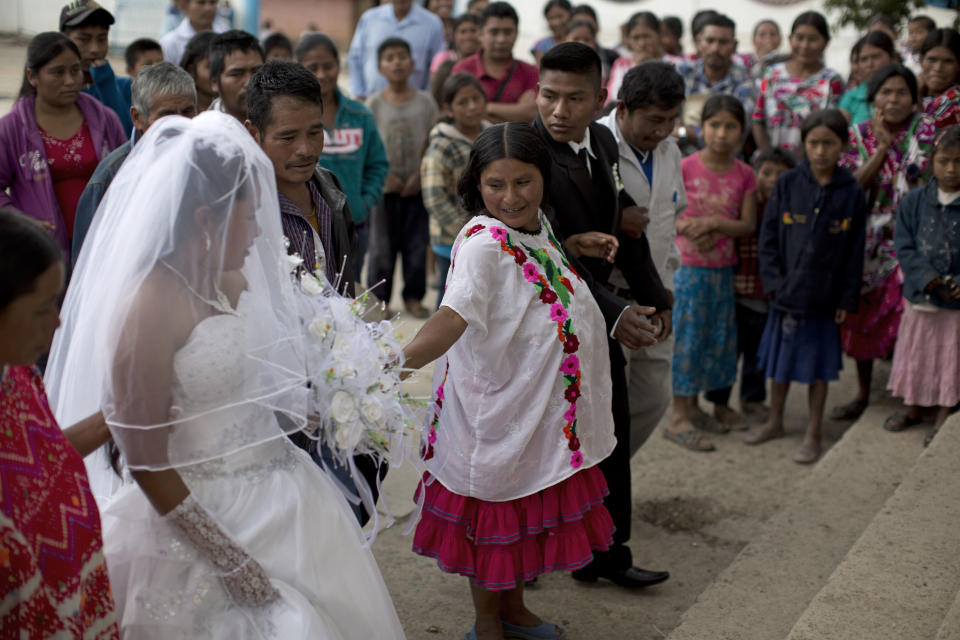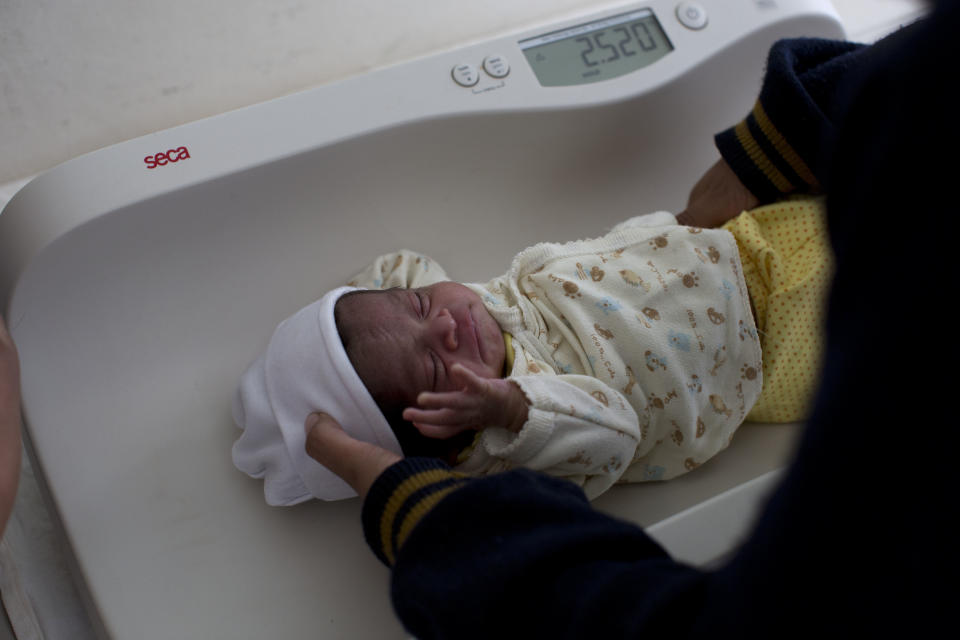Mexico anti-poverty fund draws line at 3 children
MEXICO CITY (AP) — The head of Mexico's anti-poverty program drew criticism Monday after she warned Indian mothers that government aid programs would help support only their first three children.
Activists said the warning by Social Development Secretary Rosario Robles appeared insulting and aimed at punishing women who have more children.
Robles' department said the three-child rule has actually been in place since July 2012, before current President Enrique Pena Nieto took office. The Associated Press found a reference to a similar guideline in government documents dating back to 2011, when the change appears to have first been made.
Her office said the rules apply to Indians and non-Indians alike.
Robles said she was just stating longstanding policy in a speech last week to Huichol and Cora Indian women in the Pacific coast state of Nayarit. She was talking about a series of government food aid, scholarships and health assistance programs known broadly as Oportunidades ("Opportunities") that provide a maximum of about $210 a month to poor families.
But the tone, timing and audience may not have been the best, and Robles made it sound like the rule was new.
"Opportunities is changing," Robles said in the speech. "By having a lot of children, you're not going to get more Opportunities. Opportunities is not going to benefit those who have a lot of children anymore; it is going to support those who have few children, because small families have a better life."
Two-time unsuccessful leftist presidential candidate Andres Manuel Lopez Obrador called her comments "offensive, discriminatory and racist."
Regina Tames, director of the Group for Informed Reproductive Choice, also criticized Robles. "The way she announced this in front of Indian women is completely disrespectful ... she talked to them like they were children."
"It's a threat," Tames added. "Such a policy might be good, if it were accompanied by a lot of other programs" to help women decide how many children they want and empower them to make that decision. But she noted Indian women are often victims of poverty, powerlessness and a lack of information.
The debate touches on a common stereotype in Mexico that women from the country's 60 or so indigenous ethnic groups have a lot of children. But with life expectancy among Indians lower and maternal death rates higher, Indians have slowly but steadily declined as a percentage of Mexico's total population, dropping to around 7 percent by 2012, according to the country's National Social Development Policy Council.
Of the country's 8.2 million Indians, about 72 percent are poor, and nearly 31 percent of them live in extreme poverty.
Robles said the Opportunities program is undergoing "a total redesign," and defended the limit on family size. She stressed that in rural areas, not just among Indians, there is a serious problem with large, poverty-stricken families.
"It is really incredible that in many places ... you see girls 12, 13, 14 years old with babies in their arms. They are mothers already, and they're children," Robles said last week. "So we have a serious problem."





